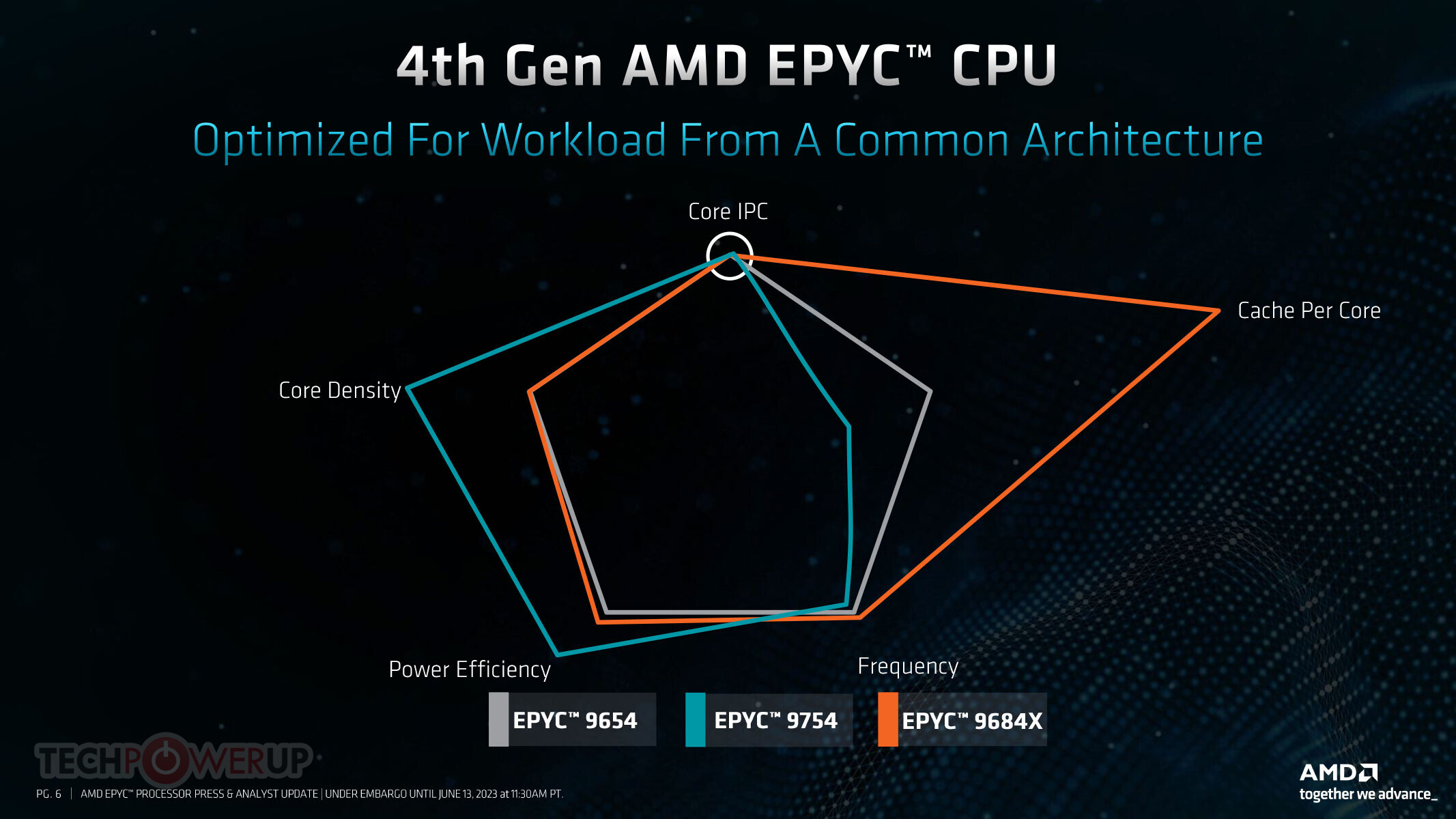Thick Thighs Save Lives
NeoGAF's Physical Games Advocate Extraordinaire
David Huang has shared a review of the first processor over on Chinese platform Zhuanlan/Zhihu shortly after the first die shot featuring AMD Phoenix2 (aka Small Phoenix) silicon emerged.
As anticipated, the Ryzen Z1 APU and Ryzen 5 7540U APU are set to feature the 6-core Phoenix2 CPU, incorporating a hybrid layout of Zen4 and Zen4c (dense) cores. These processors are specifically tailored for low-power applications, such as lightweight laptops and, in the case of the Ryzen Z1, handheld gaming consoles.
The review primarily focuses on the Z1 APU, which employs a customized power profile distinct from its laptop counterpart. Nevertheless, both variants share the same silicon, configured in an unusual configuration, with the objective of delivering a cost-effective and efficient solution based on AMD’s latest architecture.
The Zen4c (dense) cores operate at a different frequency compared to the ‘classic’ cores, with Zen4c running at 3.5 GHz and Zen4 at 4.9 GHz. However, when both types of cores are configured to run at the same 3.2 GHz frequency, their performance becomes nearly identical. This is due to the fact that both core types utilize the same ISA and frontend. An interesting aspect is that four out of six cores are designed to run at 3.5 GHz. The Phoenix2 requires less power to attain its maximum boost clock of 4.9 GHz, with power consumption measured at a mere 12.7W.
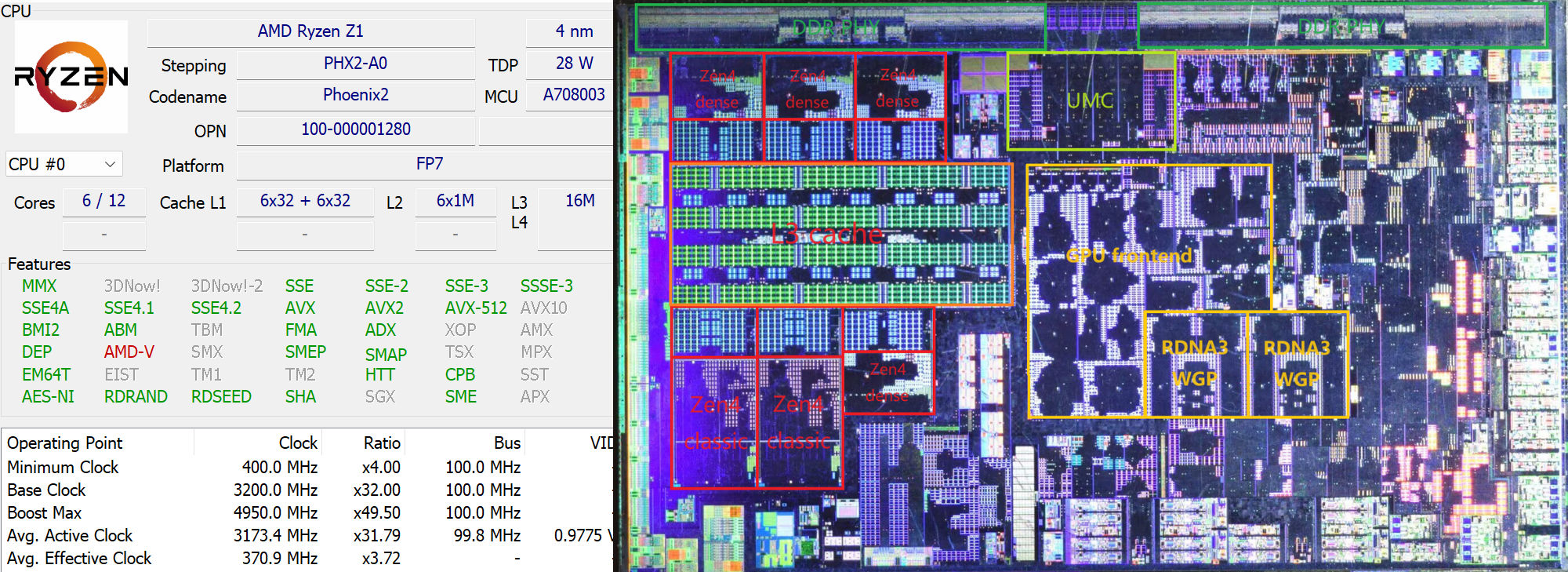
David’s review includes initial synthetic benchmarks and 3D gaming tests. Given that the Phoenix2 has a distinct core layout and reduced GPU capabilities, featuring only one-third of the Phoenix1 RDNA3 CU count (4 vs. 12), the performance drop is noticeable. However, the gaming experience can vary depending on factors like power limits, clock configurations, system memory, and cooling efficiency.
Comparing the Ryzen 7 7840U (aka Ryzen Z1 Extreme) with a 25W power limit, one can anticipate an 80% improvement in performance compared to the Ryzen Z1 running at 15W.
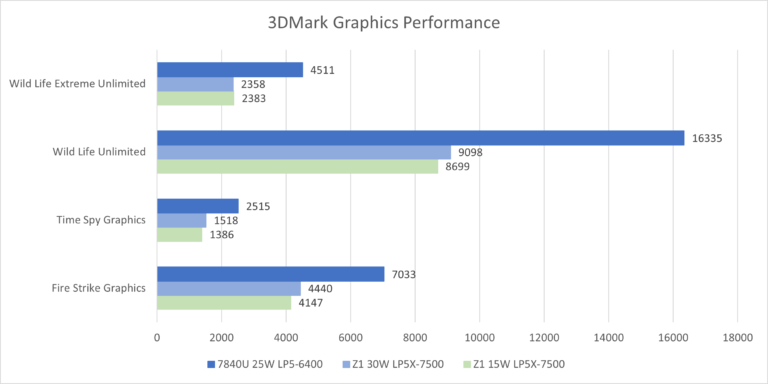
In various 3DMark graphics tests, a substantial performance gap is evident between the Z1 processor and the fully specced 7840U. The 25W 7840U generally outperforms the 15W Z1 by about 80%, with even the smallest gap in Fire Strike reaching approximately 70%. Despite being configured for 30W, the Phoenix2, with three times fewer cores than Phoenix1, can sustain a GPU clock of 2.8 GHz with just 22W of power, which drops to 1.8-2.0 GHz at 15W.
In synthetic tests, the difference between the 12CU RDNA3 iGPU in the Z1 and the 4CU RDNA3 iGPU in the 7840U narrows down to 28.6% when comparing the 7840U at 25W and the Ryzen Z1 at 30W. Notably, the Z1 running at 30W performs 34% better than at 15W. In more graphics-intensive titles like Metro Exodus or Cyberpunk 2077, the 7840U is 24.6% to 57% faster, but the performance gap between the Z1 at 30W and 15W narrows to 15% – 19%.
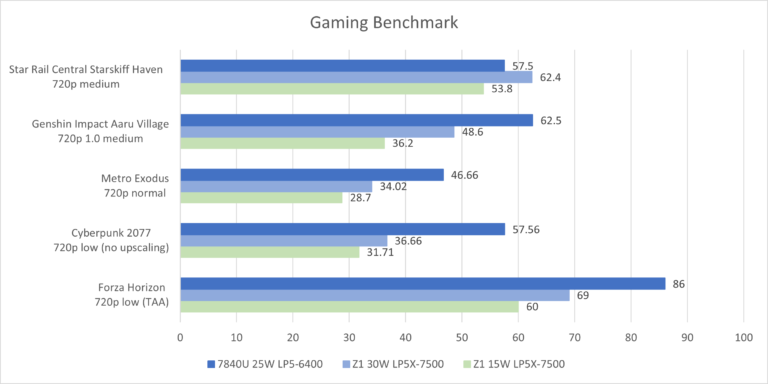
In conclusion, the AMD Phoenix, also known as Ryzen Z1 or Ryzen 5 7540U, is clearly optimized for MMO titles and games that can run effectively at lower TDPs. For handheld gamers seeking modern titles with higher fidelity, resolution, and support for high-resolution textures, which may require sticking to a higher TDP profile, the Ryzen Z1 Extreme might be a better choice. However, for gamers primarily focused on popular titles that are well-optimized for lower-spec hardware, the Ryzen Z1 may offer a more suitable performance-to-power balance.
Regarding pricing, the ASUS ROG Ally with the Z1 non-Extreme chip has not been released yet, but the company has indicated it may be priced $100 lower than the Extreme variant. Whether this price difference justifies the spec downgrade remains to be seen.
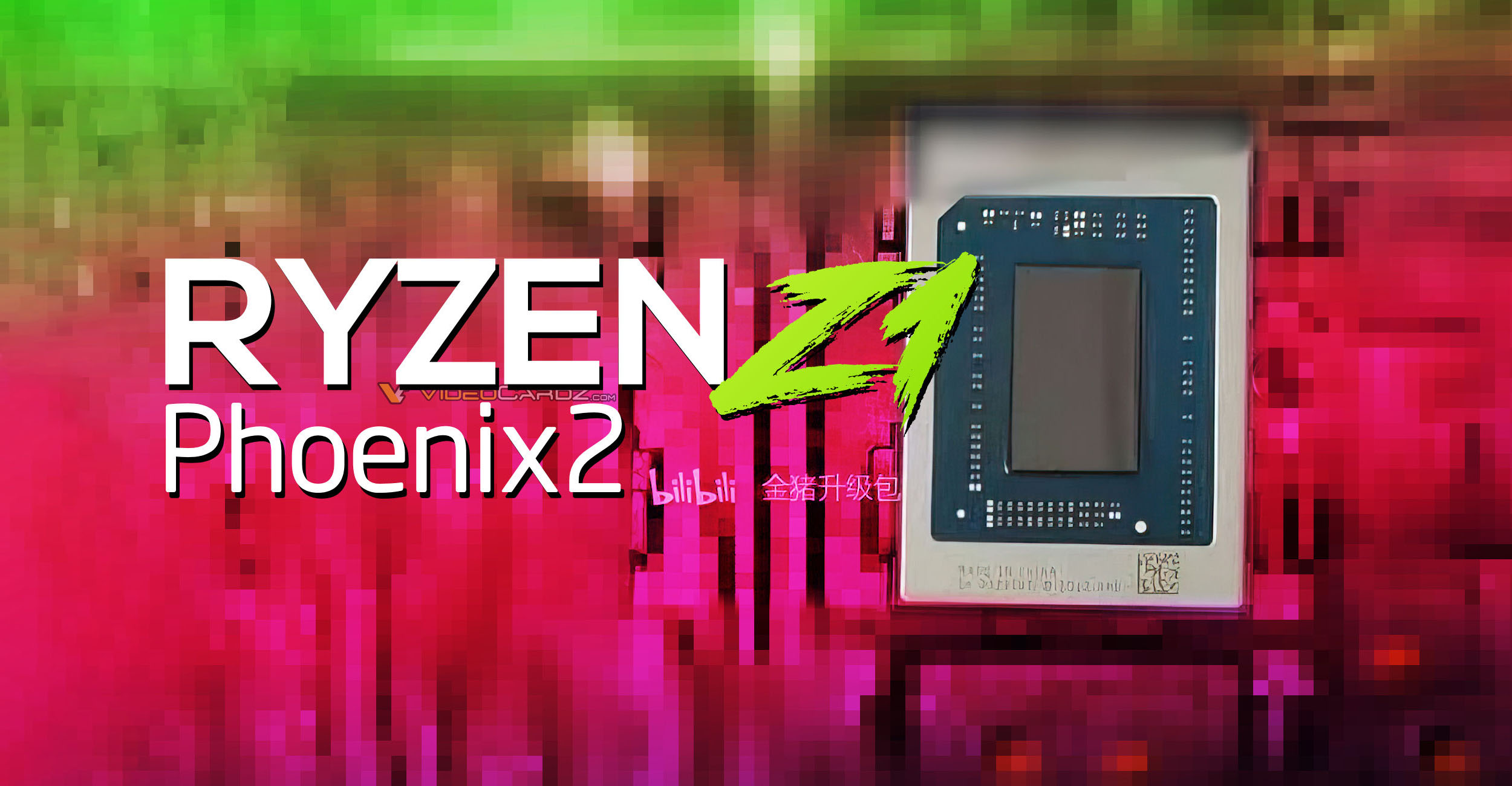
AMD Ryzen Z1 non-Extreme featuring Phoenix2 silicon has been tested - VideoCardz.com
AMD Ryzen Z1/Phoenix2 APU seems to perform well at 15W David Huang has shared a review of the first processor over on Chinese platform Zhuanlan/Zhihu shortly after the first die shot featuring AMD Phoenix2 (aka Small Phoenix) silicon emerged. AMD Phoenix2 APU, Source: Golden Pig Upgrade As...


